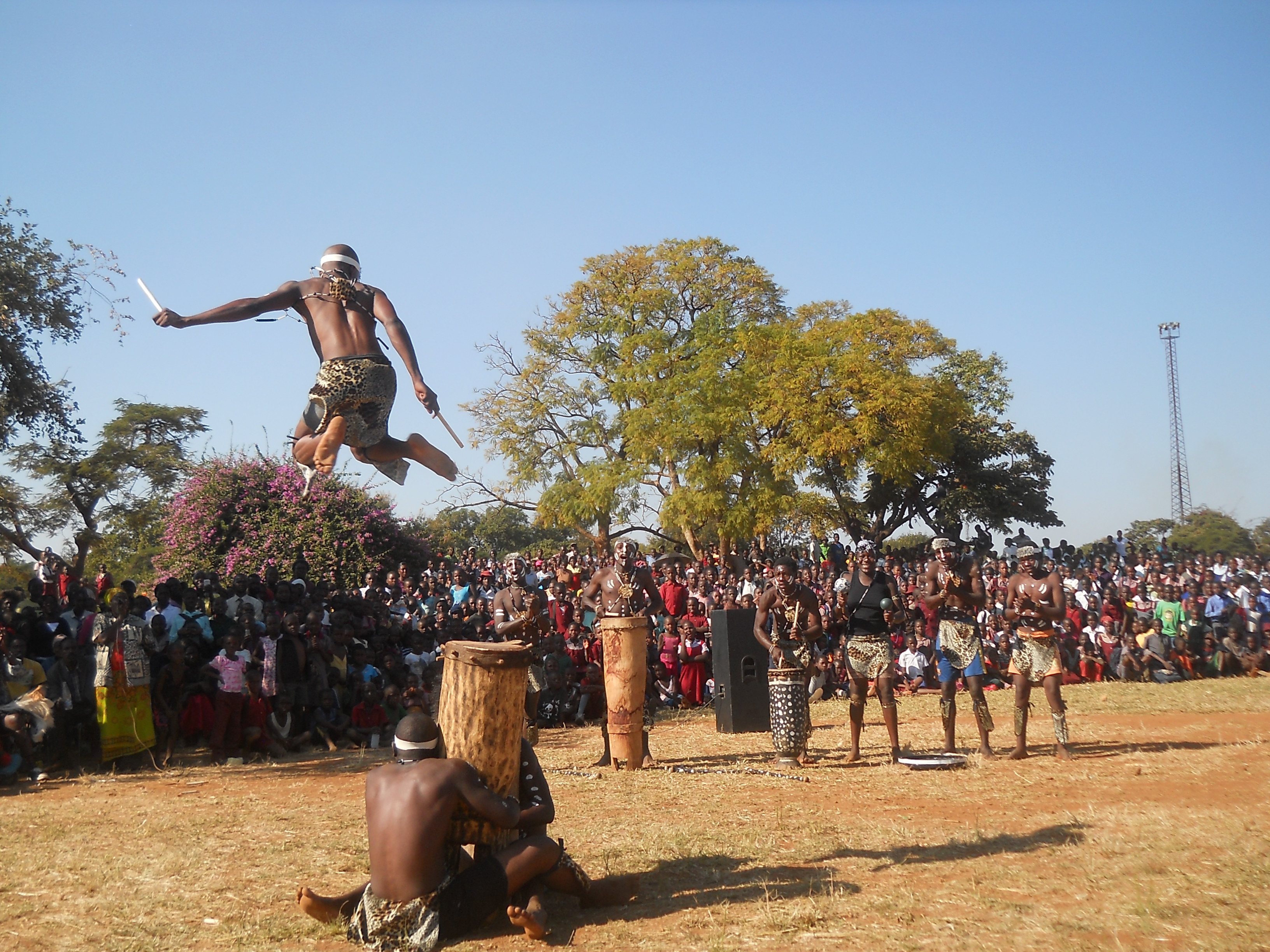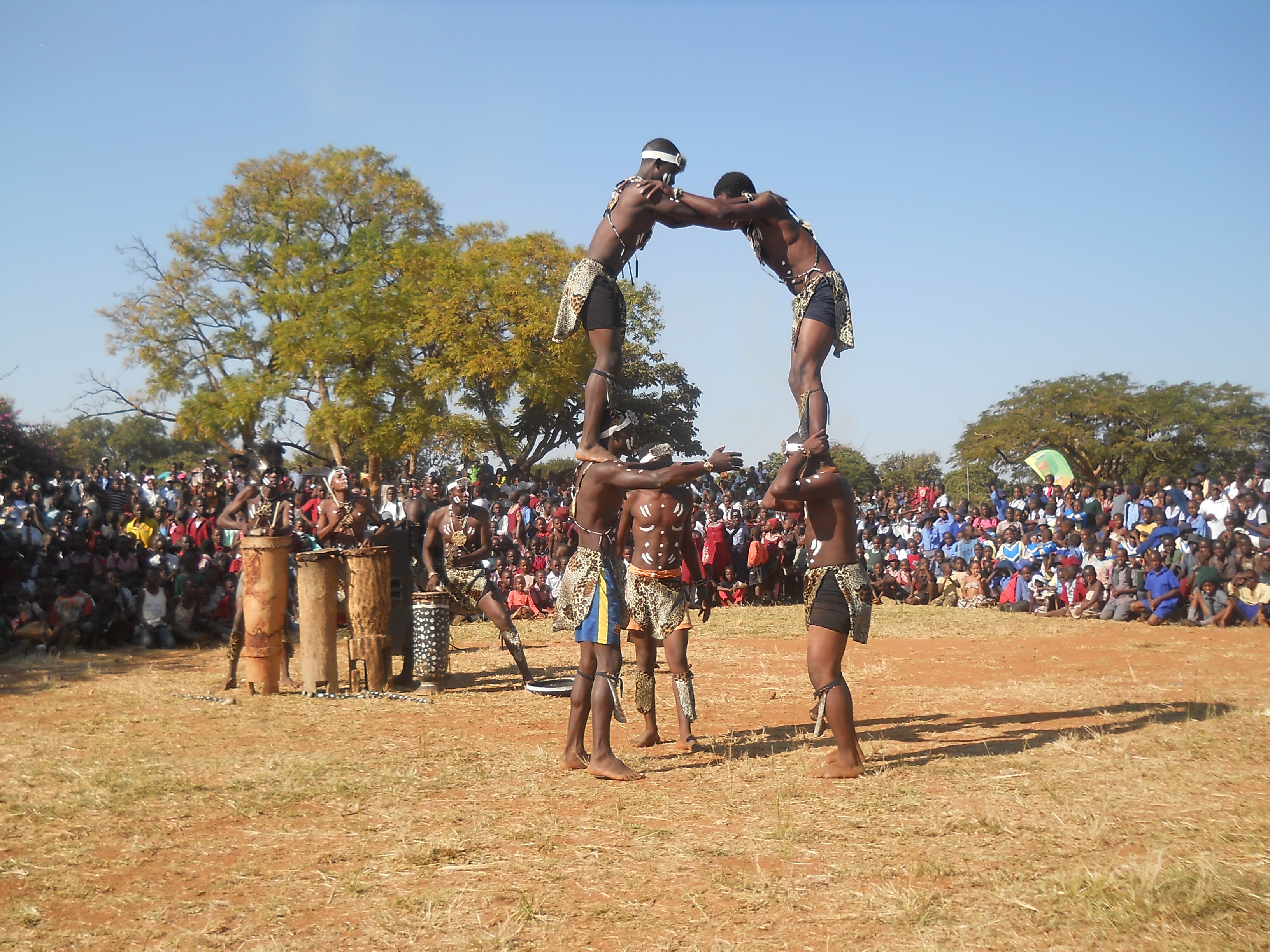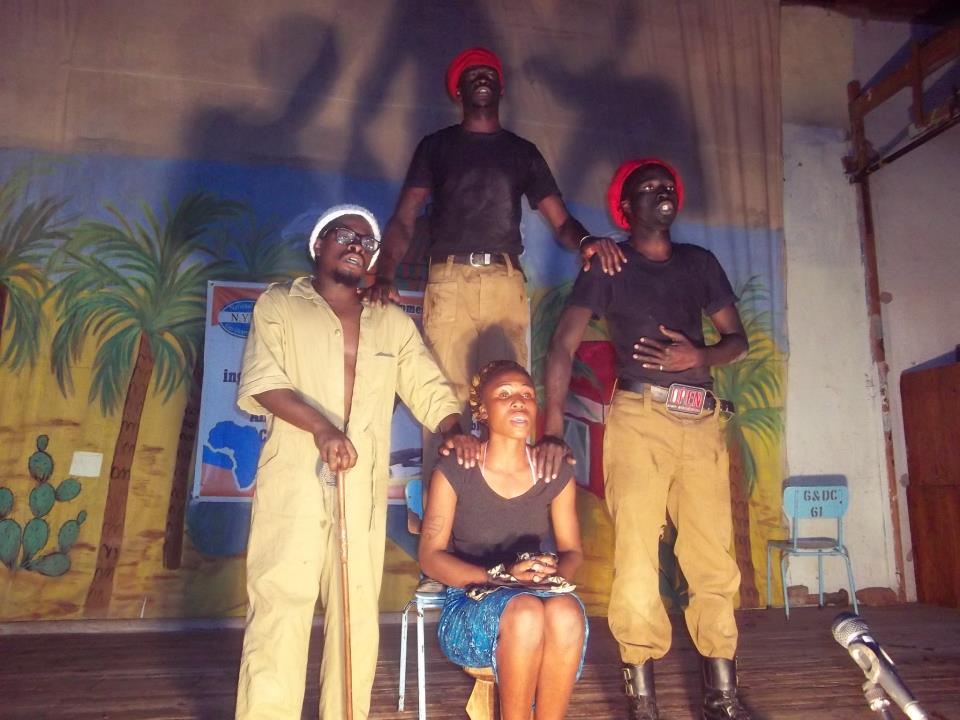Flame Of Jahunda Arts: “Reclaiming Our Artistic Space And Value”
Flame of Jahunda Arts, was formed in earlier this year, with the goal of empowering the youth through various art forms such as theatre, music, poetry and dance.
However, the members are not new to this industry, as the group is an amalgamation of a number of acts from the area. Flame of Jahunda Arts, which includes Jahunda Community Arts, saw the need to merge and combine their different acts in order to produce a more polished act.
To achieve their goal, the pioneers of the organisation are conducting workshops in the area in order to equip the youths with essential knowledge on the different forms of art.
“Flame of Jahunda Arts is a community based arts organisation whose main objective is to identify, promote, and facilitate growth and sustainable development of various performing arts forms such as theatre, music, poetry and dance through organising and facilitation of programmes and activities that enhance the skills of community arts practitioners such as workshops, seminars, talent shows, arts competitions, festivals as well as any other related activities that will help develop and sustain community arts groups.
“Ever since, performing arts is like a hobby yet the talent is unlimited and unidentified, a lot of talented artists give up and end up border jumping to the neighbouring South Africa, some resort to illegal gold panning, others get caught on the wrong side of the law.
"Most indulge in drug and alcohol abuse as there are no recreational facilities, no employment and the only motivational space to while away the time is at a pub or hanging around in trenches and bridges provoking passerby’s,” the group director, Adrian Musa, said.
ZDDT was introduced to the Flame of Jahunda by its Voluntary Provincial Development Officer for Mat South, Costain Mpala, when he was conducting the Trust’s community outreach programme in which it gets in touch with institutions within the communities to highlight their initiatives, successes and challenges. This is with the view of promoting self-help and assisting in providing possible solutions to the variety of challenges.
Flame of Jahunda has found an alcove in the artistically “defunct and starved Gwanda Town”, despite the abundance of untapped talent in the area.
“Gwanda is starved for entertainment and the only form of amusement is only for a particular target group who patronize the pubs. There a number of groups coming from outside Gwanda yet Gwanda is rich in talent that can service the community.
“Having been involved in performing arts for over a decade, with the practical experiences gained in participation in arts related programmes and activities from across the country, we feel we have enough experience and capacity to uplift performing arts in Gwanda through this project.” he said.
The arts ensemble was born out of this starvation and the youth’s urge to resuscitate the art of their forefathers and their elders who formed and nurtured vibrant groups in the past.
“Gone are the days when Gwanda was full of artistic works and activities, with an example of the Matabeleland Aids Council funded Savuka Community Arts Annual Festival in the 90’s, which inspired the birth of several theatre and dance groups that made a name for themselves during that time,” he said.
In the past, Gwanda was home to prominent arts practitioners such as “Extra Piece Theatre, which is one of the oldest groups that helped the formation of several arts groups by then, Izintandane performing arts, which recorded a radio drama by ZBC’s Inglam Nyathi, Ukhozi theatre, Thulamsindo performing arts, Amending Peace Performing Arts(APPA), Zalabantu Theatre, which performed at a national gala and was broadcast live on national television.
“There were also other groups to emerge such as the Ghetto Smurfs, who had a member identified by Aleck Macheso, Loxion Skull, Ali Sniffers, Whatever Family, Ebony Arts, GDA, a musical group which recorded an album in South Africa, Jahunda community arts, pioneers in theatre and performed across borders and had several plays nominated for awards,” he added.
They said they have been inspired by other arts groups that previously that came before them, in the town and surrounding rural communities, and as a result Flame of Jahunda is set to bring back the glory days and represent Gwanda in the national forum.
However this void, left by the earlier perfomers, has developed into a huge gap that is proving too hard to fill due to numerous factors such as financial challenges and lack of experience of the upcoming groups.
“Up to date nothing meaningful and respectable has materialised, as far as performing arts is concerned. This is due to lack of professionalism, consistency, management, exposure, markets, performing platforms, documentation and capacity building programs.
“This has necessitated the birth of Flame of Jahunda so as to bridge the void through a systematic plan of implementation that will ensure that Flame of Jahunda Arts blazes forever,” said Adrian.
The group also offers workshops to other youngsters as part of their community outreach programme, which seeks to enhance an appreciation of culture and tradition by youths.
As a result of this objective, the workshops have a strong bias towards cultural and traditional dances such as amabhiza, amantshomane, amajukwa, isitshikitsha, umtshongoyi, mhande, Jerusalema Mbende, mbakumba, chinyambire, chimtale, chokoto, shangari, mzansi, setape, tsutsube, dhine and gumboot dance.
It is this principle of inclusivity that specifically caught the eye of the Trust, as it is fundamental to the objectives of encouraging citizen participation and tolerance by providing an outlet for the voiceless in society.



